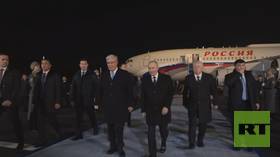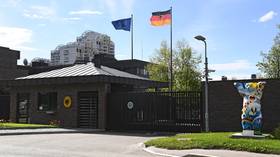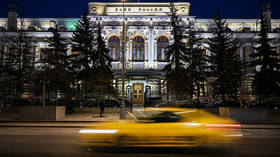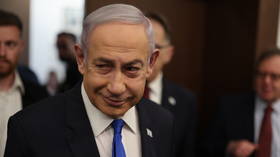UK must stop trading arms with Saudi Arabia – Amnesty
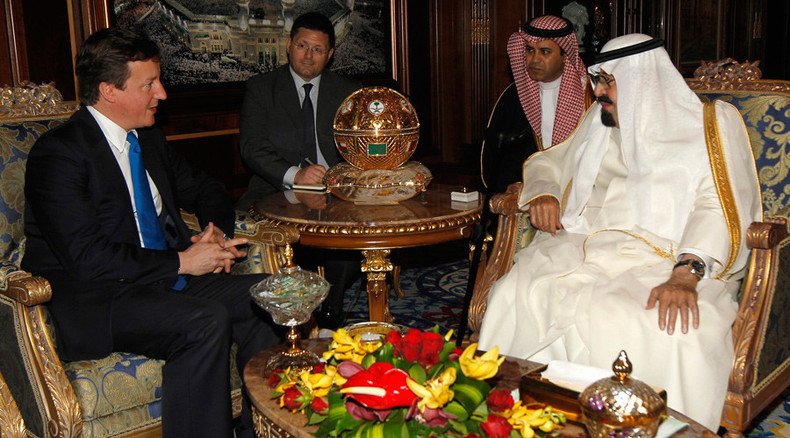
Britain is being called upon to cease arms trading with Saudi Arabia after evidence emerged of widespread civilian casualties resulting from Saudi-led attacks on rebel fighters in the Yemen conflict.
Amnesty International said the “damning evidence of war crimes” should lead to an investigation into the bombing and urged the UK to stop supplying the country with weapons.
It added that its investigation into 13 Saudi airstrikes in Yemen between May and July showed that they killed 100 civilians and injured more than 60 others.
“In at least four of the airstrikes investigated … homes attacked were struck more than once, suggesting that they had been the intended targets despite no evidence they were being used for military purposes,” Amnesty said.
The Saudi-led bombing campaign has been targeting Houthi rebels in the country, but other groups have since launched attacks against the Saudi coalition.
BREAKING: #Iraq may soon request Russia to airstrike #ISIS – head of parliament def panel http://t.co/3tmePWizHZpic.twitter.com/WjUwhz4haX
— RT (@RT_com) October 7, 2015On Tuesday, an affiliate of Islamic State (formerly ISIS/ISIL) claimed responsibility for four suicide bombings which killed 15 people, including troops from the UAE, Yemen and Saudi Arabia.
The plea to cease arms trading comes as British Prime Minister David Cameron affirmed his support for the UK’s relationship with the Saudis.
In an interview with Channel 4 News, Cameron was asked whether he had attempted to prevent the planned execution of activist Ali Mohammed al-Nimr. The Prime Minister said he personally had not raised the issue, but the Foreign Office and the British Embassy in Riyadh had.
Pressed on his motives for supporting the regime, Cameron said the relationship is maintained for security reasons.
“We have a relationship with Saudi Arabia and if you want to know why, I’ll tell you why. It’s because we receive from them important intelligence and security information that keeps us safe. The reason we have the relationship is our own national security,” he said.
“There was one occasion since I’ve been prime minister where a bomb that would have potentially blown up over Britain was stopped because of intelligence we got from Saudi Arabia.
“Of course it would be easier for me to say: ‘I’m not having anything to do with these people, it’s all terribly difficult etcetera, etcetera.’ For me, Britain’s national security and our people’s security comes first.”
Saudi clerics call for jihad against Russia in #Syria – to back #ISIS? http://t.co/TQAfJJN9BXpic.twitter.com/nLzrhUlTVl
— RT (@RT_com) October 7, 2015In his first keynote speech to the Labour Party conference as leader last week, Jeremy Corbyn denounced the UK’s relationship with Saudi Arabia and called on Cameron to intervene to stop the execution of al-Nimr.
After the prosecution of Ali Mohammed al-Nimr sparked outcry, a second activist is also reportedly facing execution in Saudi Arabia, human rights charity Reprieve revealed.
Dawoud al-Mahroon was convicted for his role in protests after al-Nimr’s death sentence. He was arrested in 2012, tortured and made to sign a confession, which was later relied upon to convict him.
Last week the Saudi Specialized Criminal Court upheld its ruling and sentenced him to death by beheading.
Cameron has also faced criticism for failing to act on the flogging sentence of Saudi blogger Raif Badawi, who this week became the 2015 PEN prize winner for his writings against the state.
LISTEN MORE:




